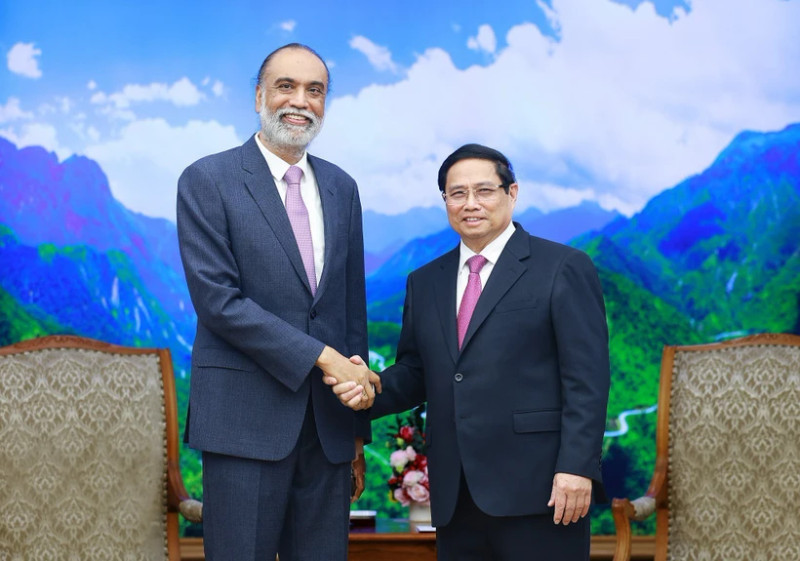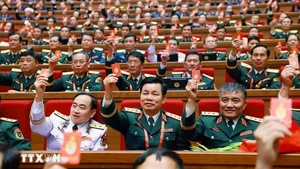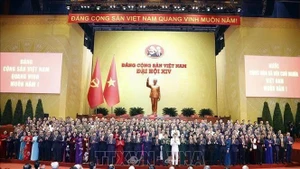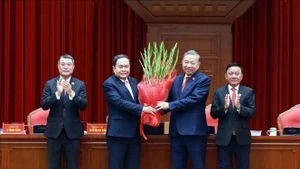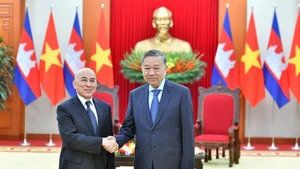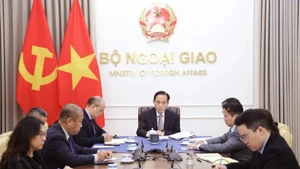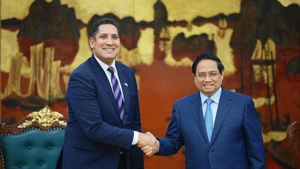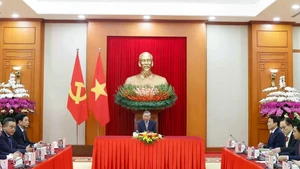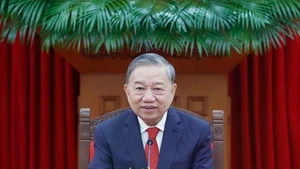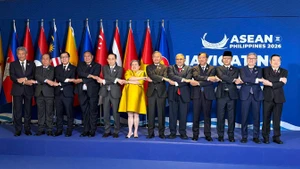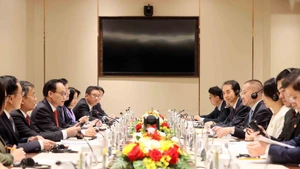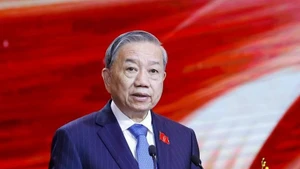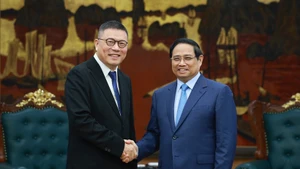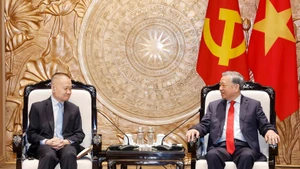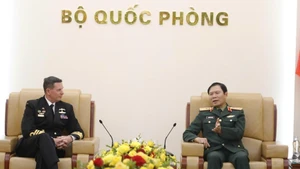Welcoming Amandeep Singh Gill to Vietnam, Chinh emphasised that Gill's presence is a clear testament to the UN’s commitment to promoting international cooperation on technology, particularly in areas such as artificial intelligence (AI), digital transformation, and innovation, which are strategic fields vital to the development of each nation and play a key role in shaping the future of humanity.
He affirmed that Vietnam, as a responsible member of the international community, always values the role of the UN and its principles, including multilateralism, peace, and sustainable development, while also recognising that the organisation is increasingly playing a leading role in maintaining peace and security, as well as promoting sustainable development, particularly in areas like science, technology, and digital transformation.
In this regard, Chinh highlighted the guest’s personal contribution to advancing the Global Digital Compact, which was recently adopted at the Summit of the Future.
The Prime Minister stated that Vietnam has identified science, technology, and innovation as an objective requirement, a strategic choice, and a top priority. In particular, fields such as digital transformation, big data, Internet of Things (IoT), cloud computing, quantum technology, semiconductors, clean energy, and new materials are seen as new driving forces for the country's development. Vietnam is striving to achieve an 8% growth rate by 2025, with the goal of reaching double-digit growth in the following years to become a country with modern industry by 2030 and a high-income nation by 2045.
He shared that Vietnam has approved and implemented several programmes and strategies, such as the National Digital Transformation Programme to 2025, with a vision to 2030, and the National Strategy on Research, Development, and Application of Artificial Intelligence by 2030.
Most recently, on December 22, 2024, the Politburo issued Resolution No. 57-NQ/TW on breakthroughs in science, technology, innovation, and digital transformation; and then established the Central Steering Committee for the Development of Science, Technology, Innovation, and National Digital Transformation, with the Party General Secretary as head and the Prime Minister as deputy head, he added.
Speaking highly of Vietnam’s increasingly important role in the development of science, technology, and innovation, particularly in the field of AI, Gill stated that his visit aims to implement the outcomes of the UN Secretary-General's trip to Vietnam in 2022, as well as his meeting with To Lam, in his position as Party General Secretary and State President, at the Summit for the Future in September 2024.
He emphasised that digital technology presents a significant opportunity for countries to make a leap forward, with Vietnam being a prominent example.
As the UN is making efforts to promote cooperation and enhance solidarity in the development of technology, with focus on the implementation, governance, and international collaboration on AI, it hopes that Vietnam will actively participate in these processes, and Vietnamese tech companies not only engage in and contribute to the domestic socio-economic development but also help address global issues, especially in developing countries.
Showing Vietnam’s support for the UN’s initiatives, PM Chinh affirmed the country’s readiness to play the role of host or co-organiser for international events aimed at promoting understanding and multilateral cooperation in the fields of technology and AI, including the hosting of the AI Governance Forum.
He proposed the UN continue to support Vietnam in developing a legal framework and international standards for technology governance; promote technology transfer; and provide Vietnam with financial support, human resources training, and governance science in the technology field, particularly in AI.
